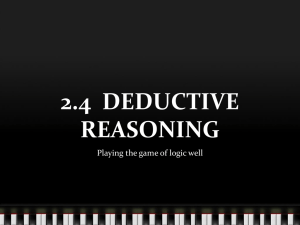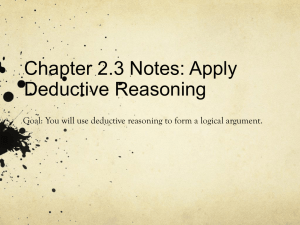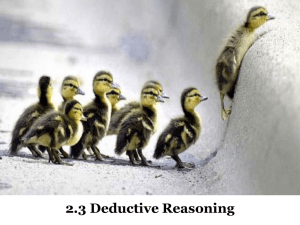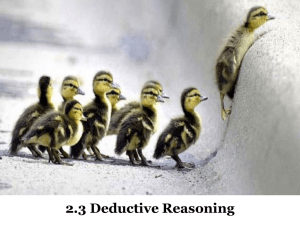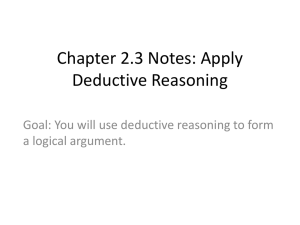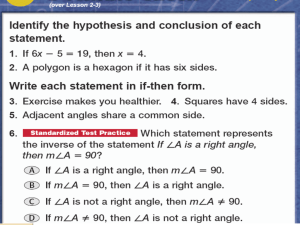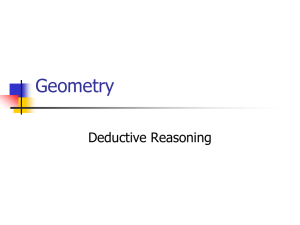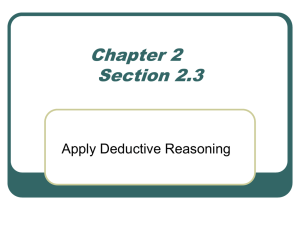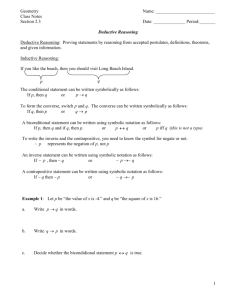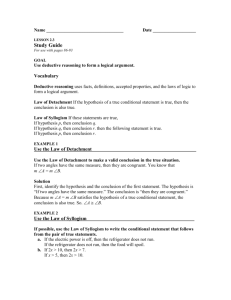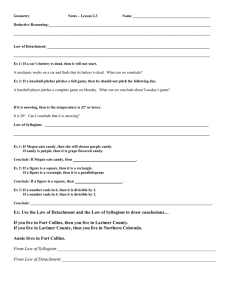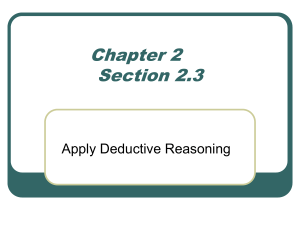Deductive Reasoning: Law of Detachment & Syllogism
advertisement
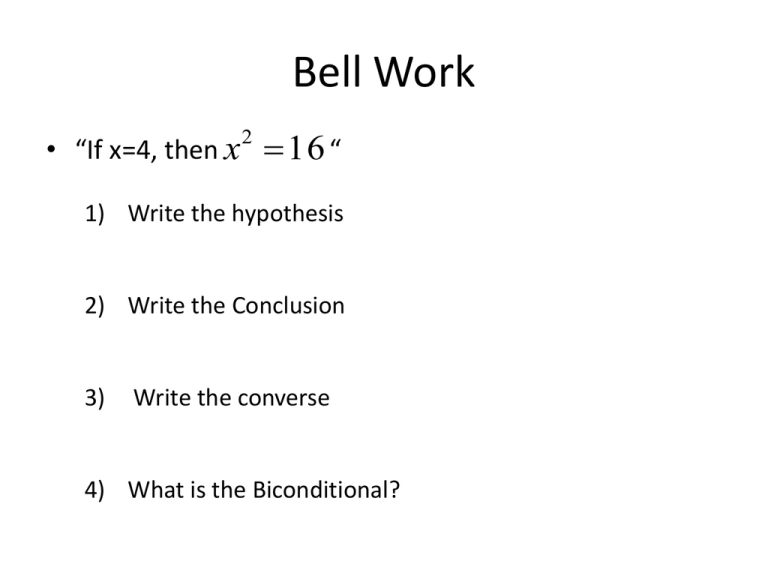
Bell Work • “If x=4, then x 2 16 “ 1) Write the hypothesis 2) Write the Conclusion 3) Write the converse 4) What is the Biconditional? Chapter 2.3 Deductive Reasoning 1.0 Students demonstrate understanding by identifying and giving examples of deductive reasoning Vocabulary • Deductive Reasoning (logical reasoning) = the process of reasoning logically from given statements to a conclusion. You conclude from facts. Example • A physician diagnosing a patient’s illness uses deductive reasoning. They gather the facts before conclusion what illness it is What’s the difference between inductive and deductive reasoning? Law of Detachment • Law of Detachment = If a conditional is true and its hypothesis is true, then its conclusion is true • In symbolic form: • If p q is a true statement and p is true, then q is true Law of Detachment Example • Use Law of Detachment to draw a conclusion If a student gets an A on a final exam, then the student will pass the course. Felicia gets an A on the music theory final exam Conclusion: She will pass Music Theory class Law of Detachment: Try it • Use Law of Detachment to draw a conclusion If it’s snowing, then the temperature is below 0 degrees It is snowing outside Conclusion: It’s below 0 degrees Law of Detachment Example: Careful! • Use the Law of Detachment to draw a conclusion If a road is icy, then driving conditions are hazardous Driving conditions are hazardous Conclusion: You can’t conclude anything!!! Quick Summary • You can only conclude if you are given the hypothesis!!! • If you are given the conclusion you CAN NOT prove the hypothesis Law of Syllogism • If pq and qr are true statements, the pr is a true statement • Example: If the electric power is cut, then the refrigerator does not work. If the refrigerator does not work, then the food is spoiled. So if the electric power is cut, then the food is spoiled. Law of Syllogism example: • Use law of syllogism to draw a conclusion • If you are studying botany, then you are studying biology. • If you are studying biology, then you are studying a science • Conclusion: If you are studying botany, then you are studying a science Law of Syllogism: Try it • Use the law of Syllogism and draw a conclusion • If you play video games, then you don’t do your homework • If you don’t do your homework, then your grade will drop • Conclusion: If you play video games, then your grade will drop Activity (5 min) • Write the summary about this section in your Cornell note. • Some questions to consider: – What is the topic about? – What did I learn from this lesson? – What questions do I have? – How does it relate to other lessons/real life? Homework • P 96 #2, 4, 8, 10, 11, 12, 14
